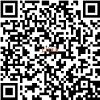(2) Widya Andayani
(3) Isli Iriani Indiah Pane
(4) Fauziah Khairani Lubis
(5) Rasmitadila Rasmitadila
(6) Mahmud Layan Hutasuhut
*corresponding author
AbstractThis study listed factors that affect motivation among Indonesian English as Foreign Language (EFL) in-service teachers using the Maslow Hierarchy of Needs theory located at an urban secondary school in North Sumatera, Indonesia. Four Indonesian EFL in-service teachers had participated in this qualitative study, with interviews and observations used as primary methods in data collect ion. In this study, researchers found that fulfillment of educational background, feelings of love towards children, passion for becoming teachers, family inspiration, and religious reasons were motivational factors for teachers. From these findings, it can be concluded that teachers were self-motivated (intrinsic) and were not influenced by external factors. However, factor that negatively affected the motivation of teachers was working environment, mainly at school (extrinsic) level. These factors include having a big group of students in a classroom and extracurricular activities which resulted in students being tired, which could cause teachers to lack enthusiasm. Therefore, teachers require professional development to address self-actualization needs to excel in their competence.
KeywordsEFL; extrinsic; in-service teachers; extrinsic; motivational factors
|
DOIhttps://doi.org/10.31763/ijele.v0i0.1911 |
Article metrics10.31763/ijele.v0i0.1911 Abstract views : 103 |
Cite |
References
Afrianto. (2014). Because teaching is like a plantation of Dakwah: Understanding complexities in choosing to be a teacher in Indonesia. Australian Journal of Educational & Developmental Psychology, 14, 51-59 https://www.newcastle.edu.au/__data/assets/pdf_file/0008/139076/self-1-afrianto-2014.pdf.
Bennel, P. (2004). Teacher motivation and incentives in sub-Saharan Africa and Asia. Brighton: Knowledge and Skills Development.
Budiharso, T., & Tarman, B. (2020). Improving quality education through better working conditions of academic institutes. Journal of Ethnic and Cultural Studies, 7(1), 99-115.
Candela, A. G. (2019). Exploring the function of member checking. The Qualitative Report, 24(3), 619-628.
Castillo-Montoya, M. (2016). Preparing for interview research: The interview protocol refinement framework. The qualitative report, 21(5), 811-831.
Çetin, F. and Aşkun, D. (2019). The effect of occupational self-efficacy on work performance through intrinsic work motivation. Management Research Review, 41(2), 186-201. https://doi.org/10.1108/MRR-03-2017-0062
Chowdhury, A., & Shil, N. C. (2021). Thinking ‘Qualitative’Through a Case Study: Homework for a Researcher. American Journal of Qualitative Research, 5(2), 190-210.
Convey, J. J. (2014). Motivation and Job Satisfaction of Catholic School Teachers. Journal of Catholic Education, 18 (1), 1-24. http://dx.doi.org/10.15365/joce.1801022014
Creswell, J. W. (2012). Educational Research. Planning, Conducting and Evaluating Quantitative and Qualitative Research. (4th ed). Pearson Education, Inc.
de Jesus, S. N., & Lens, W. (2005). An Integrated Model for the Study of Teacher Motivation. Applied Psychology: An International Review, 54(1), 119–134. https://doi.org/10.1111/j.1464-0597.2005.00199.x
Deci, E. L., & Ryan, R. M. (1985). Intrinsic motivation and self-determination in human behavior. Berlin: Springer Science & Business Media.
Dinham, S., & Scott, C. (1997). Modeling teacher satisfaction: findings from 892 teaching staff at 71 schools. American Educational Research Association Annual Meeting. Chicago, IL.
Dornyei, Z. (2005). The psychology of language learner: Individual differences in second language acquisition. Mahwah, NJ: Lawrence Erlbaum.
Dornyei, Z. (2011). Research methods in applied linguistics. quantitative, qualitative, and mixed methodologies. Oxford, New York: Oxford University Press.
Dornyei, Z., & Ushioda, E. (2011). Teaching and researching motivation. 2nd ed. Great Britain: Pearson Education Limited.
Gecas, V. (1982). The self-concept. Annual Review of Sociology, 8, 1-33 https://doi.org/10.1146/annurev.so.08.080182.000245
Hermanson, K. (2009). Getting messy: A guide to taking risks and opening the imagination for teachers, trainers, coaches and mentors. San Rafael, CA: Rawberry.
Htang, L. K. (2019). Motivations for choosing teaching as a career: Teacher trainee's perspective from a Myanmar context. Journal of Education for Teaching, 45(5). 511-524 https://doi.org/10.1080/02607476.2019.1674561
Ifinedo, P. (2003). Employee motivation and jo satisfaction in Finnish organizations: A case study of employees in the Oulu Region, Finland. Master of Business Administration. London: University of London.
İpek, H., & Kanatlar, M. (2018). Factors affecting EFL teacher motivation. Eğitimde Nitel Araştırmalar Dergisi. Journal of Qualitative Research in Education, 6(2), 25 – 41. http://dx.doi.org/10.14689/issn.2148-2624.1.6c2s2m
Janke, S., Bardach, L., Oczlon, S., & Lüftenegger, M. (2019). Enhancing feasibility when measuring teachers' motivation: A brief scale for teachers’ achievement goal orientations. Teaching and Teacher Education, 83, 1-11.
Knudsen, L. S., Skovgaard, T., & Bredahl, T. V. G. (2021). ‘I like it’: Exploring teachers' motivation for using classroom-based physical activity in Danish public schools from a self-determination perspective. Results from a mixed methods study. Teaching and Teacher Education, 106, 103439.
König, J., Jäger-Biela, D. J., & Glutsch, N. (2020). Adapting to online teaching during COVID-19 school closure: teacher education and teacher competence effects among early career teachers in Germany. European Journal of Teacher Education, 43(4), 608-622.
Konovalenko, T. V., Yivzhenko, Y. V., Demianenko, N. B., Romanyshyn, I. M., & Yemelyanova, Y. S. (2021). The possibilities of using distance learning in the professional training of a future foreign language teacher. Linguistics and Culture Review, 5(S2), 817-830.
Korthagen, F. A. (2004). In search of the essence of a good teacher: Towards a more holistic appproach in teacher education. Teaching and Teacher Education, 20(1), 77-97 https://doi.org/10.1016/j.tate.2003.10.002
Kulikowski, K., PrzytuÅ‚a, S., & SuÅ‚kowski, Å. (2022). Eâ€learning? Never again! On the unintended consequences of COVIDâ€19 forced eâ€learning on academic teacher motivational job characteristics. Higher Education Quarterly, 76(1), 174-189.
Liu, S., Zhao, D., & Xie, W. (2016). Chinese teachers' attitudes toward performance pay: The cases of three schools. International Journal of Educational Management, 30(6), 791-808. http://dx.doi.org/10.1108/IJEM-06-2015-0074
Lohbeck, A., & Frenzel, A. C. (2022). Latent motivation profiles for choosing teaching as a career: How are they linked to selfâ€concept concerning teaching subjects and emotions during teacher education training?. British Journal of Educational Psychology, 92(1), 37-58.
Maslow, A. H. (1987). Motivation and personality (3rd ed). New York: Harper and Row.
Matoke, Y. K., Okibo, W. B., & Nyamongo, D. N. (2015). Determinants of teacher motivation in Public Secondary Schools in Masaba South Sub-County, Kenya. International Journal of Economic, Commerce and Management, 3(6), 139-160.
McMillan, J., & Schumacher, S. (2001). Research in education: a conceptual introduction. New York: Addison Wesley Longman.
Mesutoglu, C., & Baran, E. (2021). Integration of engineering into K-12 education: a systematic review of teacher professional development programs. Research in Science & Technological Education, 39(3), 328-346.
Mifflin. (1995). Management and Organization. New York, NY: South-Western Publishing.
Mukminin, A., Kamil, D., & Haryanto, E. (2017). Why teacher education? Documenting undocumented female student teachers’ motives in Indonesia: A case study. The Qualitative Report, 22(1), 309-326. https://doi.org/10.46743/2160-3715/2017.2640
Mullins, L. J. (2005). Management and Organizational Behavior, 7th ed. Harlow: Prentice Hall/Financial Times.
Rao, M. B. (2016). Motivation of teachers in higher education. Journal of Applied Research in Higher Education, 8(4), 469-488. https://doi.org/10.1108/JARHE-08-2015-0066
Rasheed, M. I., Humayon, A. A., Awan, U., & Affan, D. A. (2016). Factors affecting teachers' motivation. An HRM challenge for public sector higher educational insttutions of Pakistan (HEIs). International Journal of Educational Management. 30(1), 101-114. https://doi.org/10.1108/IJEM-04-2014-0057
Ryan, R. M., & Deci, E. L. (2000). Intrinsic and extrinsic motivations: Classic definitions and new directions. Contemporary Educational Psychology, 25(1), 54-67. https://doi.org/10.1006/ceps.1999.1020
Salah, M. R. (2016). The influence of rewards on employees performance. Journal of Economics, Management & Trade, 13(4), 1-25. https://doi.org/10.9734/BJEMT/2016/25822
Sims, S., & Fletcher-Wood, H. (2021). Identifying the characteristics of effective teacher professional development: a critical review. School effectiveness and school improvement, 32(1), 47-63.
Smith, K. N. (2022). ‘If I do science, I can get the money’: a life history analysis of postsecondary students’ decisions to pursue teaching careers in STEM. Teachers and Teaching, 1-16.
Suryani, A. (2021). “I chose teacher education because…â€: a look into Indonesian future teachers. Asia Pacific Journal of Education, 41(1), 70-88.
Whitaker, M. C., & Valtierra, K. (2018). Enhancing preservice teachers' motivation to teach diverse learners. Teaching and Teacher Education, 73, 171-182 https://doi.org/10.1016/j.tate.2018.04.004
Wolf, A. G., Auerswald, S., Seinsche, A., Saul, I., & Klocke, H. (2021). German student teachers’ decision process of becoming a teacher: The relationship among career exploration and decision-making self-efficacy, teacher motivation and early field experience. Teaching and Teacher Education, 105, 103350.
Refbacks
- There are currently no refbacks.
Copyright (c) 2025 Anna Riana Suryanti Tambunan, Widya Andayani, Isli Iriani Indiah Pane, Fauziah Khairani Lubis, Rasmitadila Rasmitadila, Mahmud Layan Hutasuhut

This work is licensed under a Creative Commons Attribution-ShareAlike 4.0 International License.

International Journal of Education and Learning
ISSNÂ 2684-9240
Published by Association for Scientific Computing Electronics and Engineering (ASCEE)
W : http://pubs2.ascee.org/index.php/ijele
E : zalik@ascee.org

This work is licensed under a Creative Commons Attribution-ShareAlike 4.0 International License.





















